November 20, 2023
Earlier this week, Eurogas and Gas Infrastructure Europe (GIE), with the technical partnership of the European Network of Transmission System Operators for Gas (ENTSOG), hosted GRIDTech 2023 – a standing distribution, transmission, storage and LNG operators’ event to reflect current topics relevant for gas infrastructure.
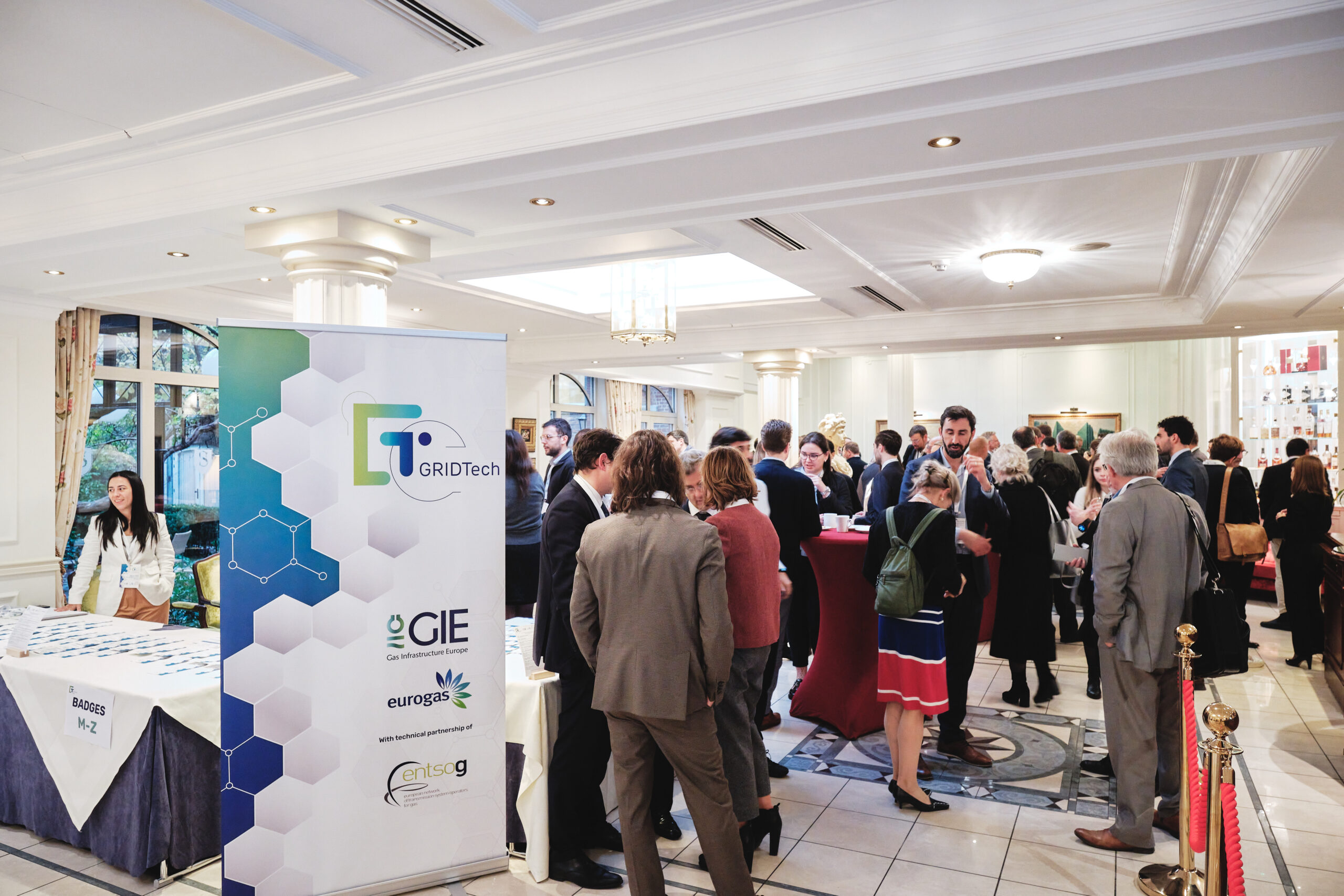
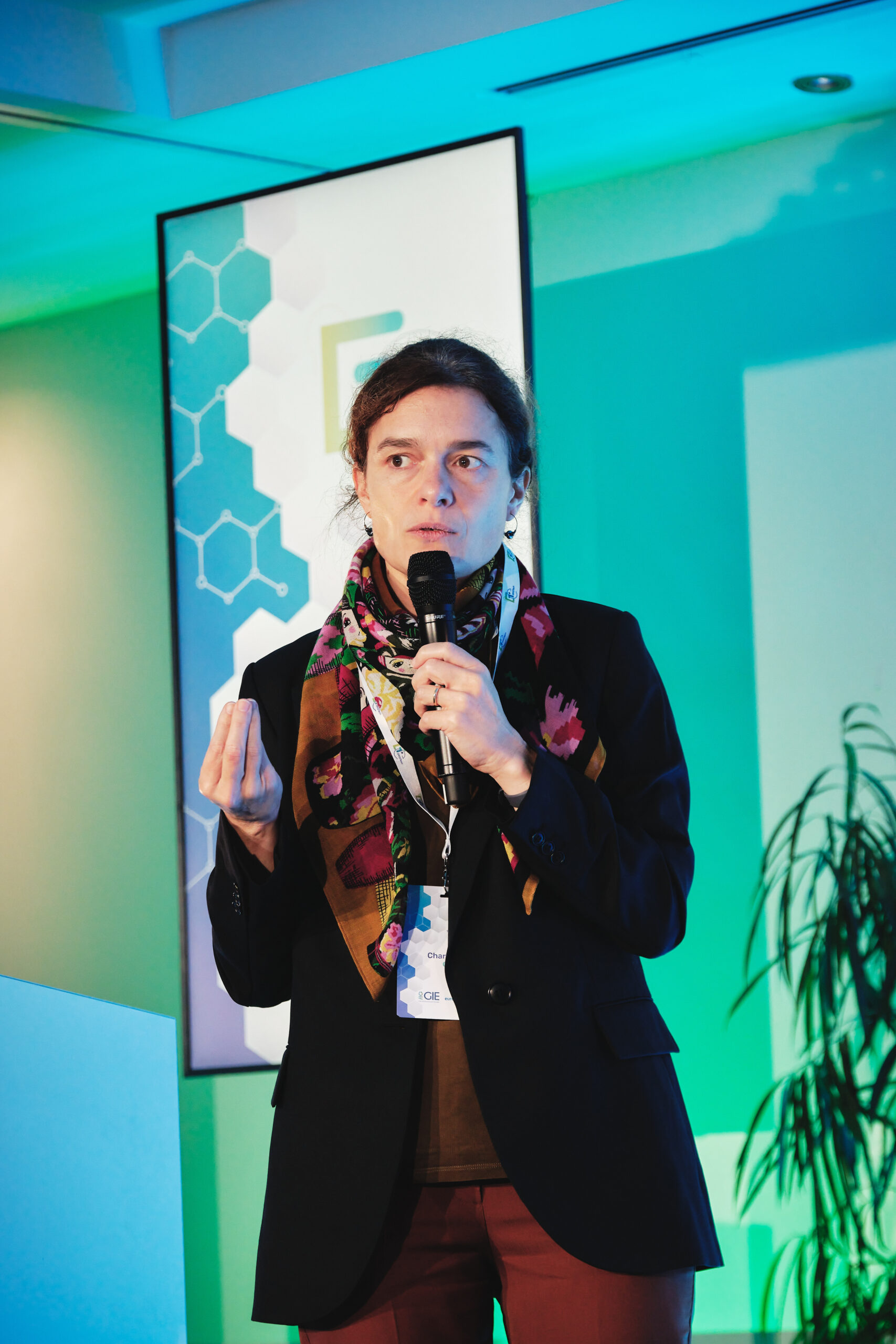
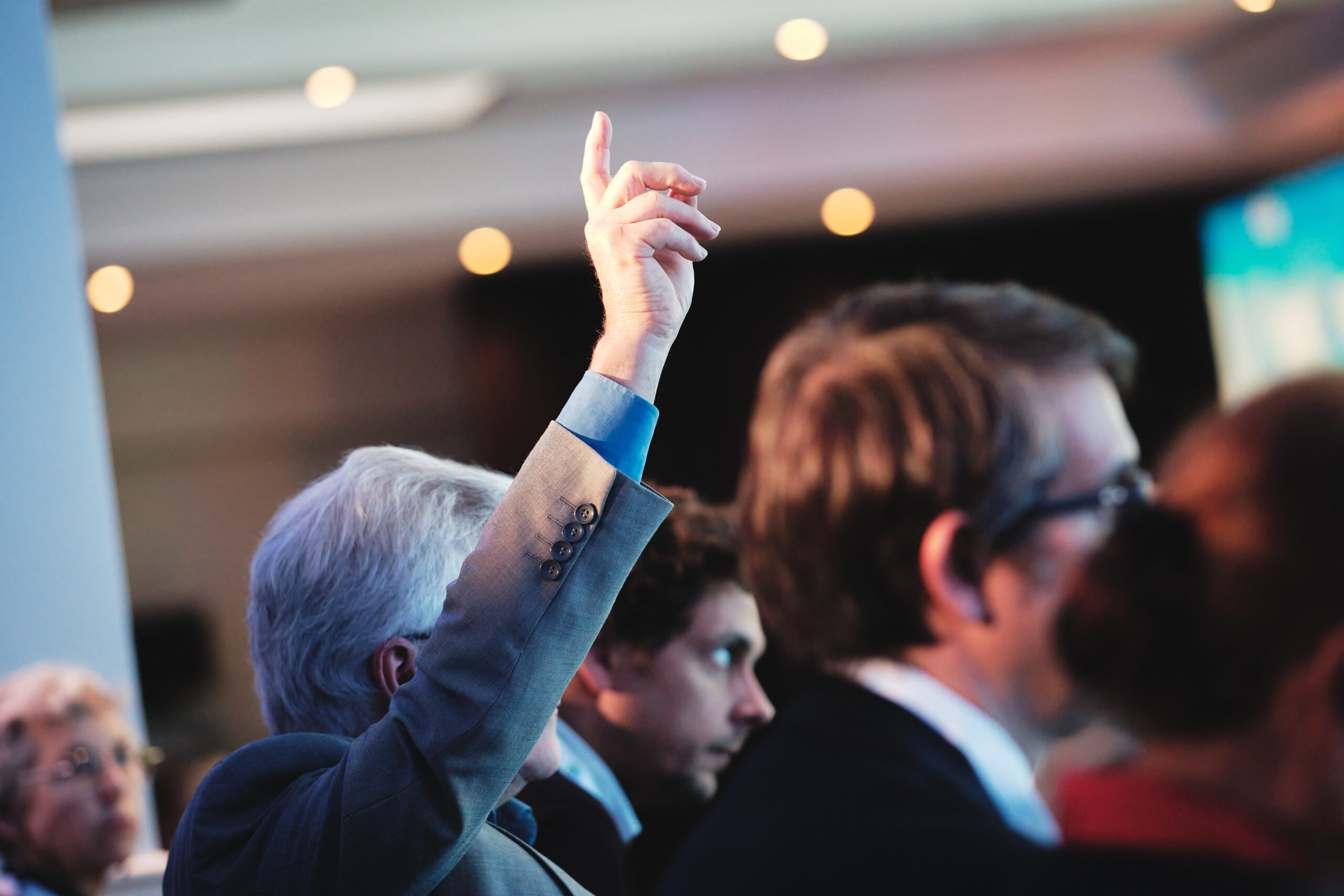
MEP Radan Kanev opened the conference by referencing the need for a strong and competitive energy market to enable a secure and zero and low carbon system. He commented, “A robust market and vigorous competition are paramount. The competition should extend across the energy system as a whole, particularly in the context of decarbonisation strategies. Achieving technology neutrality is essential, but it is even more crucial to incentivise all possible types of energy to compete on a level playing field.”
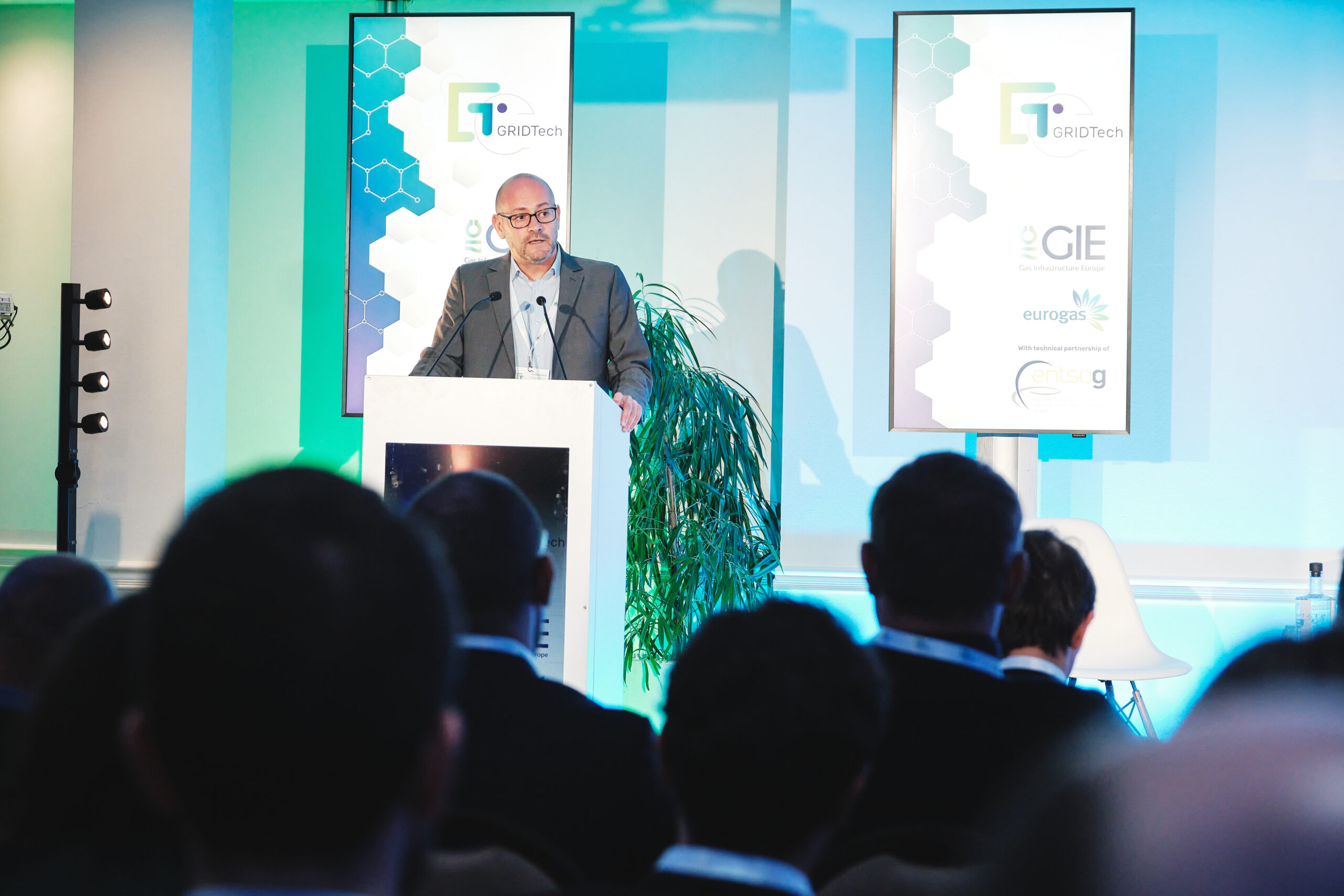
During the panel discussions, energy experts considered how energy system integration for the hydrogen, electricity and CO2 infrastructure is the most cost effective and flexible approach to decarbonise, ultimately benefiting European consumers. The panelists discussed the benefits of having common narratives to achieve this.
With the recent Council of the EU decision on the Methane Emissions Regulation, it was a timely occasion for panelists to consider the possibilities to make the necessary reductions in methane emissions to ensure EU’s leading role in this activity. Reporting, standards and impact assessments based on accurate data were referred to as critical to advance in this area.
European Commission DG Energy Head of Unit Joachim Balke referenced the challenge of planning infrastructure in uncertain conditions, in particular on the demand and supply sides. The regulatory framework of the revised TEN-Regulation to translate PCI / PMI projects to concrete hydrogen corridors as envisioned in the REPowerEU Plan, and the finalisation of the Hydrogen and Decarbonised Gas Package, will assist in this regard.
Eurogas Secretary General James Watson said, ‘The great success of GRIDTech 2023 shows the unity of the gas sector to quickly drive forward our decarbonisation. Bringing all the energy sectors into integrated collaboration is going to be key for delivering the EU’s net zero ambition.’
GIE Secretary General Boyana Achovski said, ““REPowerEU has mandated gas infrastructure operators to safeguard the security of supply of Europe with future-proof solutions. This is what keeps us busy. Our infrastructure will evolve through time, fueling the transformation of the European economy into a climate-neutral, innovative and fruitful one. The awaited Decarbonised Gas and Hydrogen Package is critical to this transition as it will be decisive for the hydrogen market to ramp up. We need regulatory certainty now to accelerate investments.”
ENTSOG General Director Piotr Kuś commented, ‘It is clear from the GRIDTech discussions that dialogue, cooperation and coordination is needed at every level and across every energy vector to achieve our collective goals. The synergies between molecules and electrons are clear. Now we need the clear regulatory framework to ensure an efficient planning of future work together.’’
Event moderation was provided by Anne-Sophie Corbeau from the Center on Global Energy Policy. The full list of speakers is available here: https://www.gridtechevent.eu/. A recording of the conference will also be available on the event page shortly.
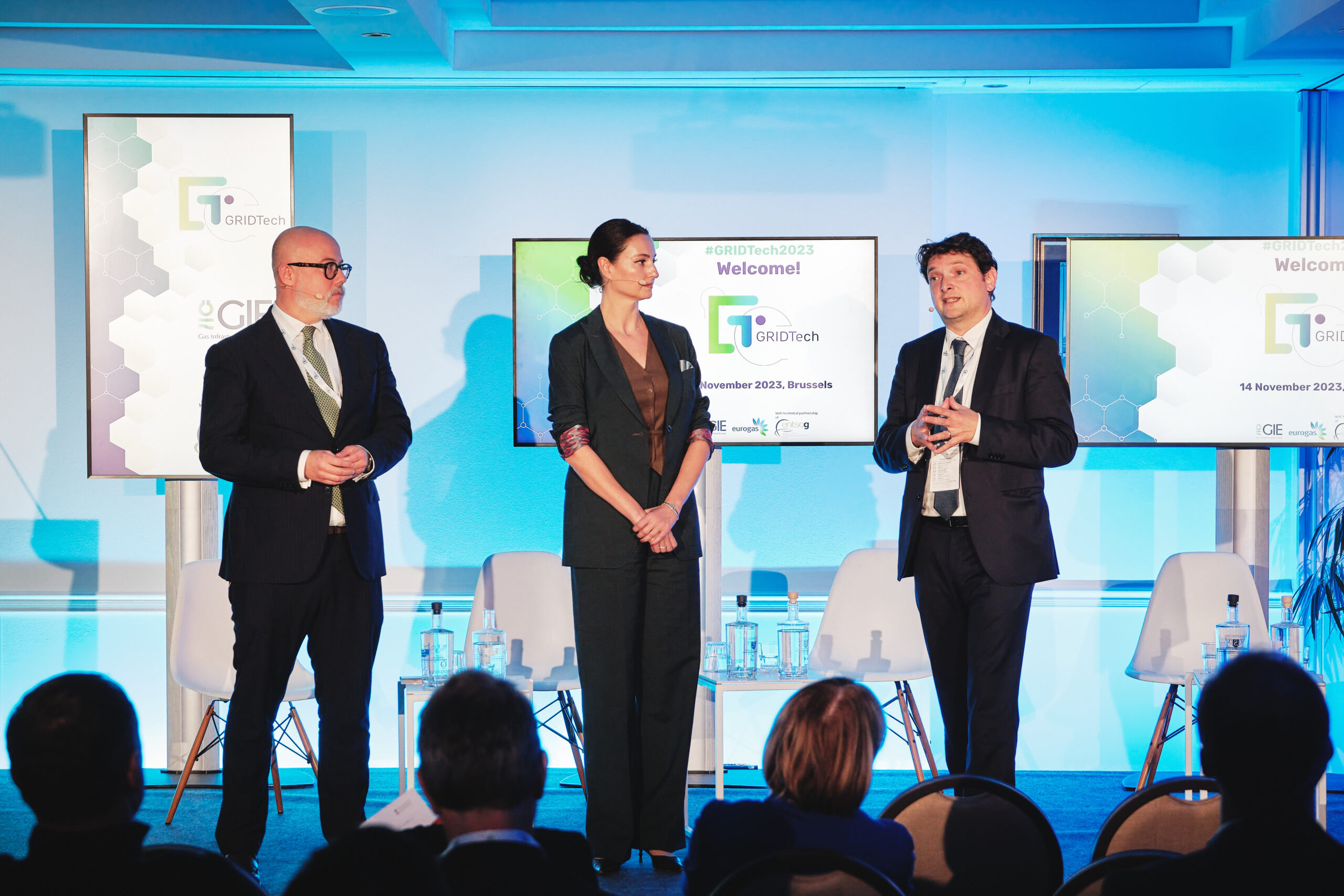
Should you require any further information, please contact info@Gridtechevent.eu
Editorial notes
Gas Infrastructure Europe (GIE) is the association representing the interests of European gas infrastructure operators active in gas transmission, gas storage and Liquefied Natural Gas (LNG) regasification. GIE is a trusted partner of European institutions, regulatory bodies and industry stakeholders. It is based in Brussels, the heart of European policymaking. GIE currently represents 70 member companies from 26 countries. GIE’s vision is that by 2050, the gas infrastructure will be the backbone of the new innovative energy system, allowing European citizens to benefit from a secure, efficient and sustainable energy supply.
Downloads















































